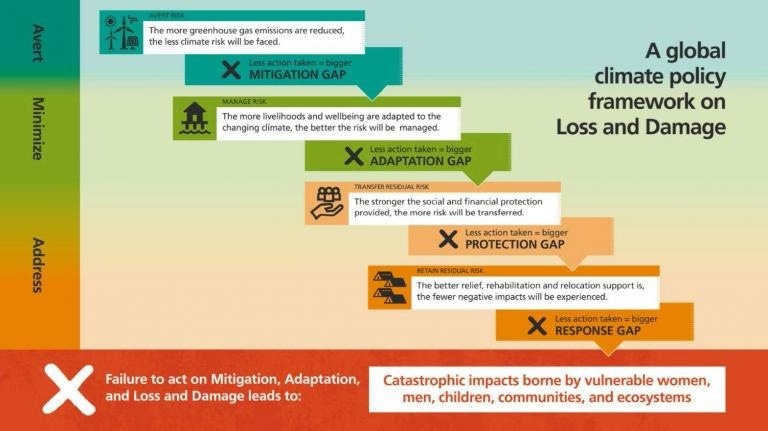Reviewed by Emily Henderson, B.Sc.Nov 10 2022
Since COP27 is in progress in Sharm El Sheikh, Egypt, climate-related losses and redress is again anticipated to take center stage.

Image Credit: Flood Resilience Alliance
IIASA added up to a new policy brief by the Flood Resilience Alliance, of which IIASA is a member, offering significant figures, facts, and context that delineate just how crucial it is that advance is made on this problem.
Although climate impacts remain to proliferate throughout the world, powerfully impacting the most adaptable, the policy debate on Loss&Damage remains disputed between the Global North and South as a result of the vague language and a lack of links to wider climate policy.
While taking into account the actions to help exposed communities impacted by the effects of climate change, one needs to consider the complete spectrum of minimizing, averting, and fulfilling losses and damages.
Alleged non-economic losses and damages—such as losses of life, biodiversity, and culture, as well as threats to mental health and raised insecurity. This additionally stresses the requirement to avert and reduce losses and damages possible, as few of their impacts are irreversible.
The new policy brief, coauthored by Reinhard Mechler, who heads the Systemic Risk and Resilience Research Group in the IIASA Advancing Systems Analysis Program, sets out a framework that might sequentially house negotiating positions and hence assist policy formulation.
It displays how gaps with a view to performing climate mitigation and adaptation need attention to social protection (better access to social safety nets), financial (insurance), and powerful post-disaster event response.
While the Global North has largely offered financial protection in the form of subsidized disaster insurance, the Global South has been heavily pushing for a Loss&Damage fund as a response mechanism. Further attention to social protection has been a common concern and thus may constitute that sweet spot to compromise on.
Reinhard Mechler, Leader, Systemic Risk and Resilience Research Group, International Institute for Applied Systems Analysis
The brief (and a basic report) additionally stresses that few adaptable countries, like Bangladesh, indeed have a plethora of social safety programs that some of the most climate-vulnerable households have entry to.
Moreover, some of these directly tackle climate events and thus fail to safeguard when disaster hits. Hence, it creates a chance for climate policy to assist with this protection gap.
This problem gained great attention at COP26 in 2021, with considerable pressure on developed nations to establish a fund for fulfilling the losses and damages. Eventually, this was unsuccessful, with the only agreement being to remain in the discussions.
Yet, the alleged Glasgow Dialogue indicates the first time that the requirement for finance for losses and redress has been recognized in a COP decision, and several countries will be making a good try for real progress at this year’s meeting.
Suggestions included in the Flood Resilience Alliance’s briefing in front of COP27 include:
- Closing the gaps that exist at present in this sphere will need huge investments and new methods to avoid and control avoidable losses and damages for the most adaptable in society by raising adaptation measures.
Also, this will need making or reinforcing extensive and shock-responsive social protection programs where suitable and well-designed insurance schemes to guarantee that the most vulnerable men, women, and children do not go through the charges of the climate crisis where the means to adaptation have been exhausted.
- Improving policymaking and implementation capacity by reinforcing systems at all levels so that increased funding could be delivered efficiently in an approach that is holistic instead of incremental, concentrates on exposed locations and ecosystems and fulfills the requirements of the most adaptable members of society.
- Also, investment is needed to build evidence in the form of more (and better) data on the scope of threats and impacts—human, ecological, and economic—and on the efficacy of the policies and programs that were done to decrease and fulfill them. This must be done in collaboration with communities to better make them against climate-related risks.
- Finally, yet importantly, successful, locally-led response mechanisms require to be generalized. Worldwide and national funds should finance the expansion of efforts to fulfill losses and redress that have proven to be efficient, are locally led, and meet the particular requirements of the communities they assist.
The policy brief and expertise of functioning with flood-prone communities throughout the world will be presented at a COP27 side event by the Zurich Flood Resilience Alliance NGO partners Mercy Corps, the International Federation of the Red Cross and Red Crescent Societies (IFRC), Concern Worldwide, and Plan International on Thursday, November 10th, 2022.